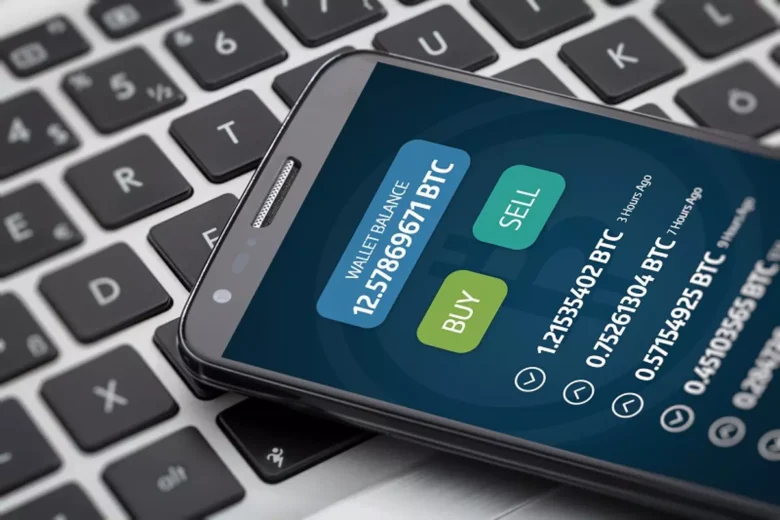Are you concerned about the security of your cryptocurrency investments? It’s time to take control and start properly protecting your digital assets by understanding the different types of cryptocurrency wallets.
In this guide, you’ll discover how to store and manage your crypto safely.
Contents
Trading safely

Source: v2.cimg.co
Cryptocurrency is becoming an increasingly popular investment tool, with more investors targeting it as a way to diversify their portfolios. However, trading crypto does come with some risks and there are tips users should follow in order to ensure the safety of their investments.
These include taking the time to research digital currencies and exchanges beforehand, using reliable wallets and exchanges such as Tesler, diversifying investments across different currencies and platforms, tracking transactions and prices regularly, understanding the applicable taxation laws, and being aware of potential scams or frauds.
All of these steps help shield users from any unexpected issues when trading cryptocurrency and can also help them maximize returns on their investments while minimizing risks. By following these steps, crypto traders can benefit from positive trading experiences without worrying about their money or security being compromised.
Types of Cryptocurrency Wallets

Source: cryptonewsreview.com
Cryptocurrency wallets are necessary for storing, sending, and receiving digital currencies like Bitcoin and Ether. They come in different forms and are used for different purposes. Knowing the types of cryptocurrency wallets available will ensure that you make an informed decision when selecting the onethat suits your needs.
• Hot Wallets
Hot wallets are online accounts that can be accessed from any computer or device connected to the internet. They are convenient as it allows users to make quick transactions with their cryptocurrencies in exchange for other currencies. However, they also have some risks associated with them such as security vulnerabilities and potentially malicious activities by hackers or thieves.
• Desktop Wallets
Desktop wallets are software that is downloaded onto your computer’s hard drive and connected directly to the blockchain network. This type offers high levels of security as the private keys are stored locally on the hard drive instead of on a third-party server like with hot wallets. It also has a great user interface; however, it can only be accessed from one specific device where the software was installed.
• Hardware Wallets
A hardware wallet is a physical device that stores both public and private keys digitally on its secure platform. They are considered one of the most secure storage solutions for cryptocurrency as there is no risk of online attacks due to not being exposed directly to the internet environment like hot or desktop wallets where sites might fall subject to hacking attempts. These devices provide you with full control over your funds and private keys since they operate offline – outside the reach of hackers or viruses distributed over the internet – therefore making them much less vulnerable than other types of storage methods such as paper wallets.
• Web Wallets
Web-based crypto wallets are a convenient way to use cryptocurrency without having to download any additional software. However, they run in an online environment, which poses risks of malicious activity by hackers. To stay safe, it is important that users set up two-factor authentication (2FA) whenever offered by the provider. This will help add extra layers of protection against cybercrime assailants at all times – so caution and awareness are key!
Best Practices for Storing Crypto

Source: gemini.com
Having a secure wallet is essential when you’re dealing with digital assets like cryptocurrency. While there are a lot of different options available, it’s important to choose the one that best suits your needs and provides the highest level of security.
Every investor needs to understand the basics of crypto wallets so that their coins and tokens remain safe from cyber attacks. Below are some basic tips for storing crypto safely:
- Choose a secure wallet that is appropriate for your specific needs: Consider both desktop, mobile, and web-based wallets for their distinct features and ability to hold various coins and tokens.
- Use two-factor authentication (2FA): Many wallets offer an extra layer of security where users must enter two types of information such as codes or passwords before transacting.
- Use open-source software: As with most software applications, open-source projects tend to be more secure than closed-source alternatives due to the larger pool of developers looking at the codebase.
- Make sure you back up your keys: Your keys are like passwords but specific to digital assets; back up your private keys in case you ever need them in the future.
- Use strong passwords or passphrases: Digital identity thieves have sophisticated software tools to guess passwords; use longer, securely generated words and phrases or utilize password managers whenever possible.
- Enable all security measures possible: From setting timeouts on logins to instant notifications when any new activity is detected; utilize every security optimization available within each wallet platform.
How to Back Up Your Crypto

Source: fxempire.com
When backing up your wallet, it is important to use multiple copies on separate physical devices (such as a computer hard drive and an external storage device). Make sure that each backup drive is kept in a secure location separate from the others and that access to these storage locations is limited.
It’s also important to regularly check the integrity of the backup copies. You can do this by accessing some or all of the data at least once every few months to make sure the files have been backed up correctly and none have been corrupted or deleted over time. In addition, encrypting these files before they are stored provides extra security against unauthorized access by hackers.
Conclusion
Ultimately, cryptocurrency wallets provide a secure way to store and keep track of your digital assets. While there are some risks involved with holding crypto assets, as long as you choose the right wallet, follow security best practices, and keep your recovery keys safe and secure, you can rest assured that your crypto is being kept safe.
By choosing the right wallet for your needs, understanding potential security threats, and taking necessary precautions to ensure the safety of your digital assets, you can protect yourself from any potential security slip-ups or scams. Doing so will allow you to enjoy a worry-free experience while trading with cryptocurrencies in an ever-evolving market.
